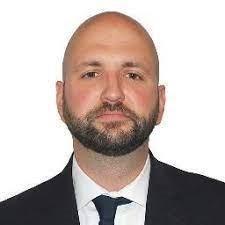Just transition is a commonly used concept in today’s climate discussions. But what does it mean? And can it be accomplished?
There is no single definition of just transition. Broadly speaking, it encompasses the wide range of activities we must carry out to make sure workers and societies can prosper in the transition to a net-zero carbon economy. In this shift, many millions of jobs are expected to disappear, which will hurt communities. Workers will need training, new job opportunities and may have to relocate. Entire regions and industries dependent on fossil fuels will have to be redesigned by 2050. Just transition also recognizes the need to address the unequal impacts of climate change around the world, with the poorest communities being among the most vulnerable.
The need to ensure a just transition is at the heart of global climate commitments. The Paris Agreement on climate change recognizes “the imperatives of a just transition of the workforce and the creation of decent work and quality jobs.” At the 2018 United Nations climate conference in Katowice, Poland, countries adopted a just transition declaration to make sure no one is left behind in the new green economy.
As little pain as possible
To avoid dangerous climate change, the world economy must undergo a rapid transformation with regard to energy and land use. These two areas are the most significant sources of greenhouse gas emissions and are at the root of the climate crisis. Phasing out fossil fuels and other high-carbon activities by the latter half of the century and helping developed and developing countries make deep structural changes with as little pain as possible must be an integral part of the process.
As central players in global climate finance, the European Investment Bank and the other multilateral development banks committed in 2019 to support a just transition worldwide. As the world’s largest climate bank, the European Investment Bank is committed to helping people make this switch fairly and equitably.
“Ensuring a just transition for all” is one of four pillars of the EIB Climate Bank Roadmap that outlines how we will meet our climate goals from 2021 to 2025. Outside Europe, the European Investment Bank is developing a dedicated just transition approach. We will build on the experience of investing in renewable energy projects that speed up the move away from coal and other fossil fuels, and promote climate action and socioeconomic development.
A just transition must be supported in the regions and countries that will have the hardest time coping with the changes. This includes sub-Saharan Africa, the EU Eastern Neighbourhood, small island developing states, and fragile regions. This support is a priority for our new development arm, EIB Global.
Long history of clean energy investment
The European Investment Bank has a long record of investing in clean energy infrastructure projects outside the European Union. Together with partners, we supported:
- solar energy in Zambia
- wind power in Brazil
- wind and geothermal projects in Kenya
- municipal energy efficiency in Jordan
- offshore wind and solar power in India
- rural electrification of schools and hospitals in the Gambia
- hydropower in Liberia, Burundi and Madagascar
- off-grid projects that bring electricity to households and micro-entrepreneurs
In Zambia, we also are working with a local commercial bank, Zanaco, to provide long-term loans and technical assistance that help smallholder farmers and agricultural businesses adapt to climate change. In Guinea, the EIB is offering a loan to provide electricity to 1,500 telecommunications towers using solar panels and battery storage. This will significantly reduce the use of diesel generators and improve communication services for 7.5 million people across the country. It also expands mobile phone connections in remote areas.
The European Investment Bank works with local partners, international organisations and European Union countries through a variety of programmes, including:
- RenewAfrica, which supports renewable energy in 48 African countries
- DESIREE, a partnership with the European Commission for high-risk sustainable energy projects in Africa, Asia, and Latin America
- Desert to Power and the Great Green Wall, two initiatives backing clean energy and green development in the Sahel region of Africa
In addition to stopping fossil fuel use and investing in clean energy, we need to use a holistic approach that includes social development and environmental sustainability. This is at the heart of the list of just transition principles that the EIB and eight other development banks published ahead of the 26th UN climate conference in Scotland in 2021. This covers areas such as gender equality, economic empowerment for women and youth, conflict and fragility, and migration.
Making sure women are treated equally and given the same economic opportunities in the context of climate action is one of the priorities for the European Investment Bank. In May 2021, the Bank committed to a significant increase in investments related to the SheInvest initiative and the African Women Rising technical assistance programme. At the 2021 climate conference, the Bank announced the 2X Gender Smart Climate Finance Guide, which helps investors identify opportunities in gender and climate finance.
We are working with the African Development Bank, the European Commission and the Organisation of African, Caribbean and Pacific States to implement Boost Africa, a program supporting the entrepreneurial potential of young Africans in sectors such as:
- Technology
- Agribusiness
- financial services
- renewable energy
The European Investment Bank is always trying to develop innovative initiatives and form partnerships that tackle economic and social challenges sustainably. This is the just transition at work. Ensuring a just transition inside and outside Europe while fighting climate change are parts of a long-term effort that we will strengthen in the years to come.
